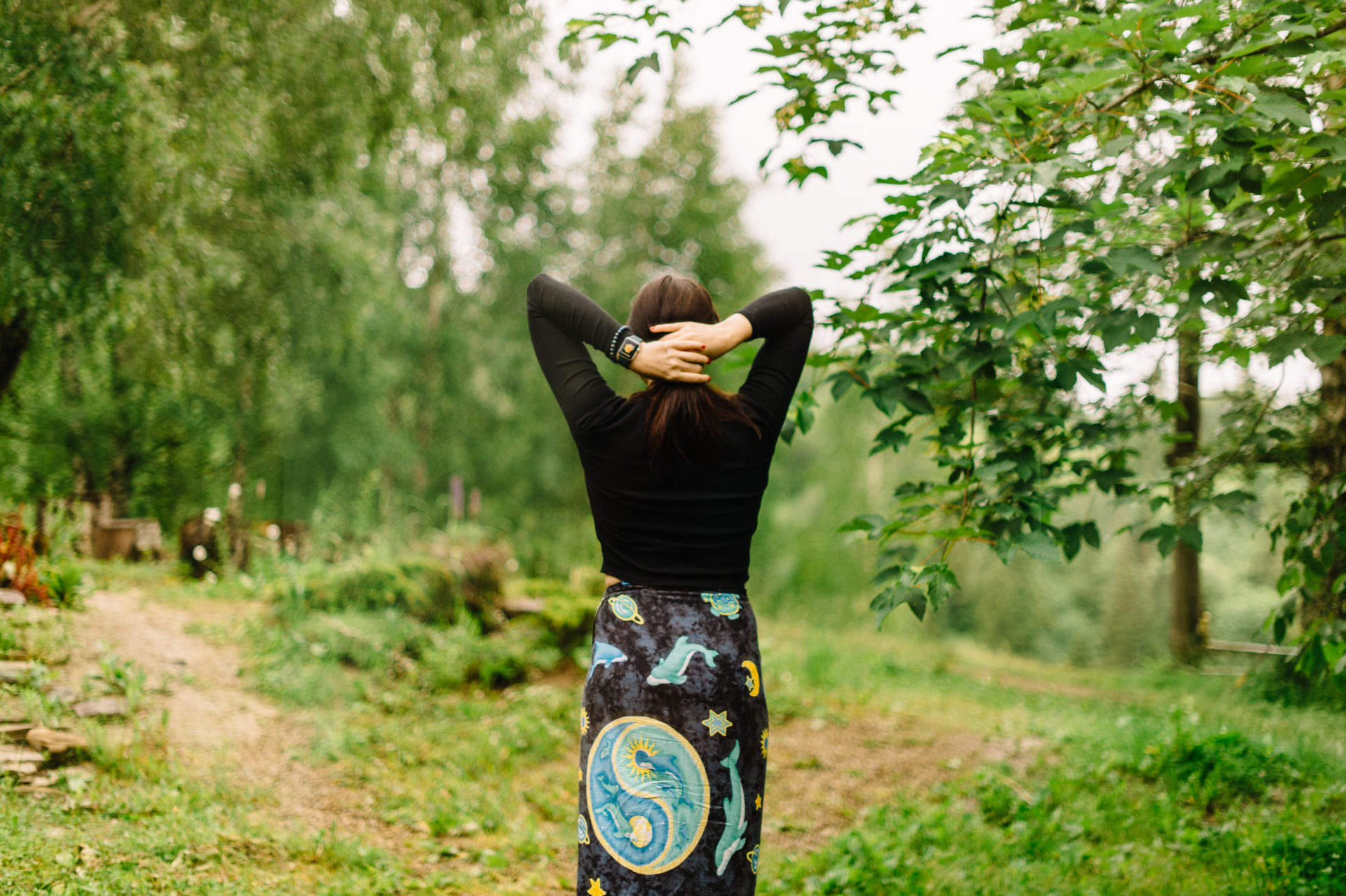“The importance of wellbeing for civil society organisations cannot be overstated.”
Elisabeth Ng Langdal is the Executive Director of Mental Health and Human Rights Info (MHHRI), a member organisation of Human Rights House Oslo. She works with international projects related to information on mental health in war and conflict areas. She shared that civil society organisations (CSOs) are particularly vulnerable to burnout among their employees, “operating with limited resources and being driven by lofty ideals. When team members experience burnout due to excessive workloads and high expectations, it not only affects their individual effectiveness but also jeopardises the overall sustainability and impact of the organisation. In a CSO, the burden of work often shifts to other team members when one faces burnout, leading to a ripple effect that hampers the organisation’s ability to effectively serve its beneficiaries. Therefore, the importance of wellbeing for civil society organisations cannot be overstated.”
“Given the ongoing unprecedented crises in the region, such as the war in Ukraine and antidemocratic tendencies in neighbouring countries, civil society organisations are undoubtedly facing unique challenges. These crises can profoundly impact their approach to sustainability and wellbeing. For instance, organisations may need to reallocate resources in response to the conflict or adjust their advocacy efforts to counter antidemocratic trends. Additionally, the exhaustion and fatigue experienced by civil society in Ukraine, coupled with limited resources allocated for wellbeing, highlight the urgent need for support and resources to address the wellbeing of individuals affected by these crises.”
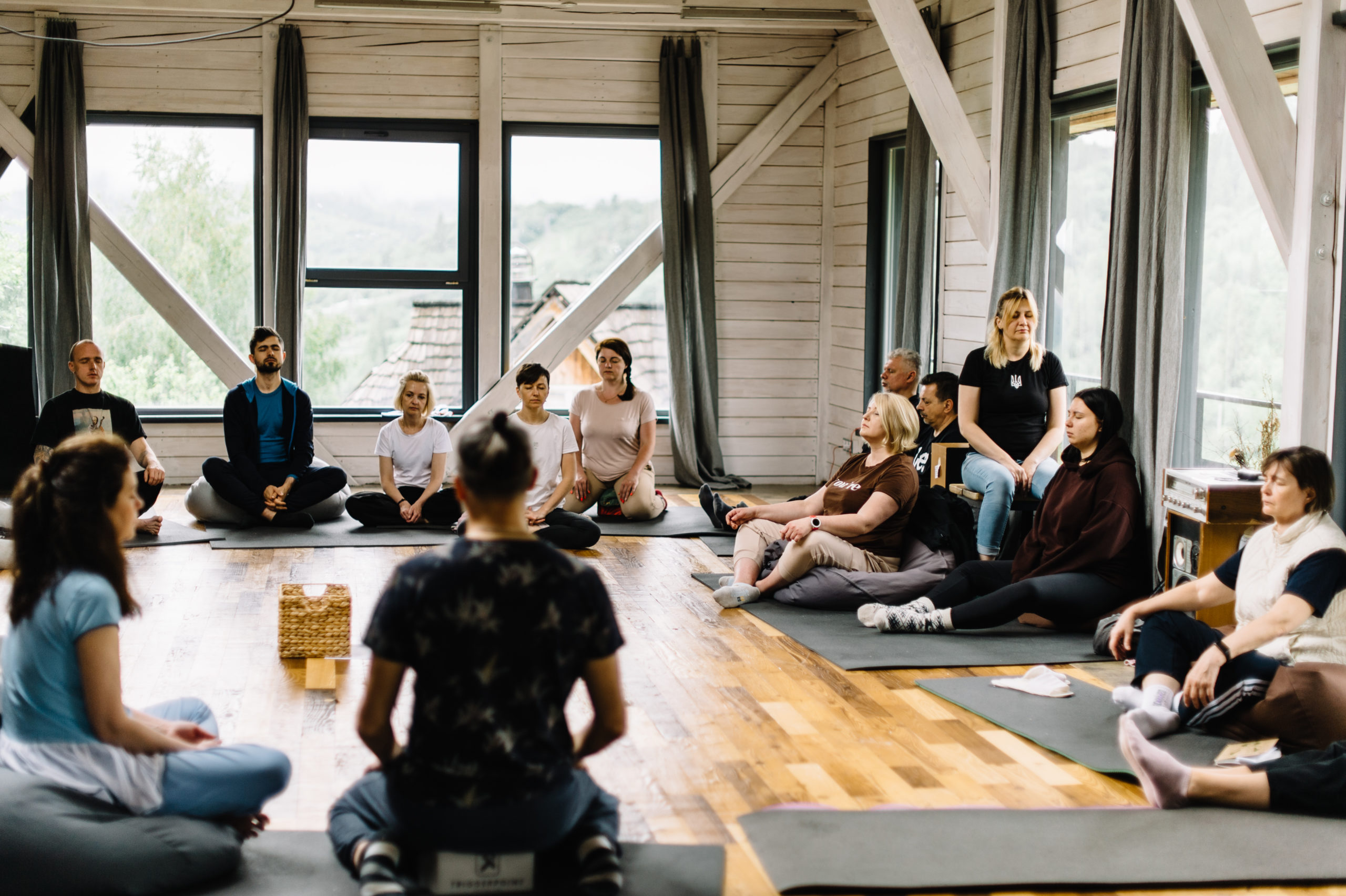
Ng Langdal’s colleague, Wika Solonitsyna, Programme Coordinator and co-founder of AHALAR, a member organisation of Educational Human Rights House Chernihiv, works with Ukrainian ‘helpers’ – activists, human rights defenders (HRDs), and volunteers. Solonitsyna says that the high demand for the wellbeing support of Ukrainian CSO representatives in the current context of war shows the direct connection between mental health and human rights.
As of 25 April 2024, 130,820 crimes of aggression and war crimes by the Russian Federation against Ukraine were registered, according to the Office of the Prosecutor General of Ukraine. “We all understand that the actual figures are much higher,” says Solonitsyna, “and due to the occupation of the territories and intense combat operations ongoing, many reports are still awaiting confirmation and investigations.”
“Such crises not only pose a physical threat but also have a serious impact on mental wellbeing and the psychosocial aspect of an individual’s life. While mental disorders and mental health issues not only negatively affect an individual’s productivity and wellbeing but also extend beyond – negatively impacting their loved ones, the community, and the life of the society as a whole.”
| According to the Sociological Survey of Civil Society Organisations, commissioned by East Europe Foundation in 2023, Ukrainian organisations list emotional burnout as one of the top three internal problems and challenges faced by the organisations together with the lack of funds and weak physical infrastructure. |
“This is what reality looks like for many human rights defenders [in Ukraine today].”
In HRHF’s recent interview with Crimean HRDs marking ten years of Crimean resistance to the occupation, Olha Skrypnyk, Chair of the Board at the Crimean Human Rights Group and an internally displaced person herself shared:
“[Our work] is about the huge responsibility that we have taken upon ourselves and carry on, realising that it will also have negative [psychological] consequences to each one of us. We don’t work eight hours a day, we have 24/7 work that has been going on for 10 years. And after 2022, organisations in Ukraine, including ours, faced yet another new challenge. It’s the question of physical survival… Most of the organisations of the civil society remained in Ukraine, despite all the risks [of the full-scale war] – and this says about our resistance… But it’s a very difficult experience, and I don’t wish it on anyone to survive in the conditions that [Ukrainian] civil society is in today.”
Skrypnyk’s colleague, Liudmyla Yankina, the Leader of the Civil Society Protection Unit at the ZMINA Human Rights Centre also shared insights on the complexity of burnout among Ukrainian civil society and human rights defenders, primarily stemming from emotional burdens, the relentless pace and load of work amid ongoing conflict and responsibility to continue their work regardless of personal safety concerns.
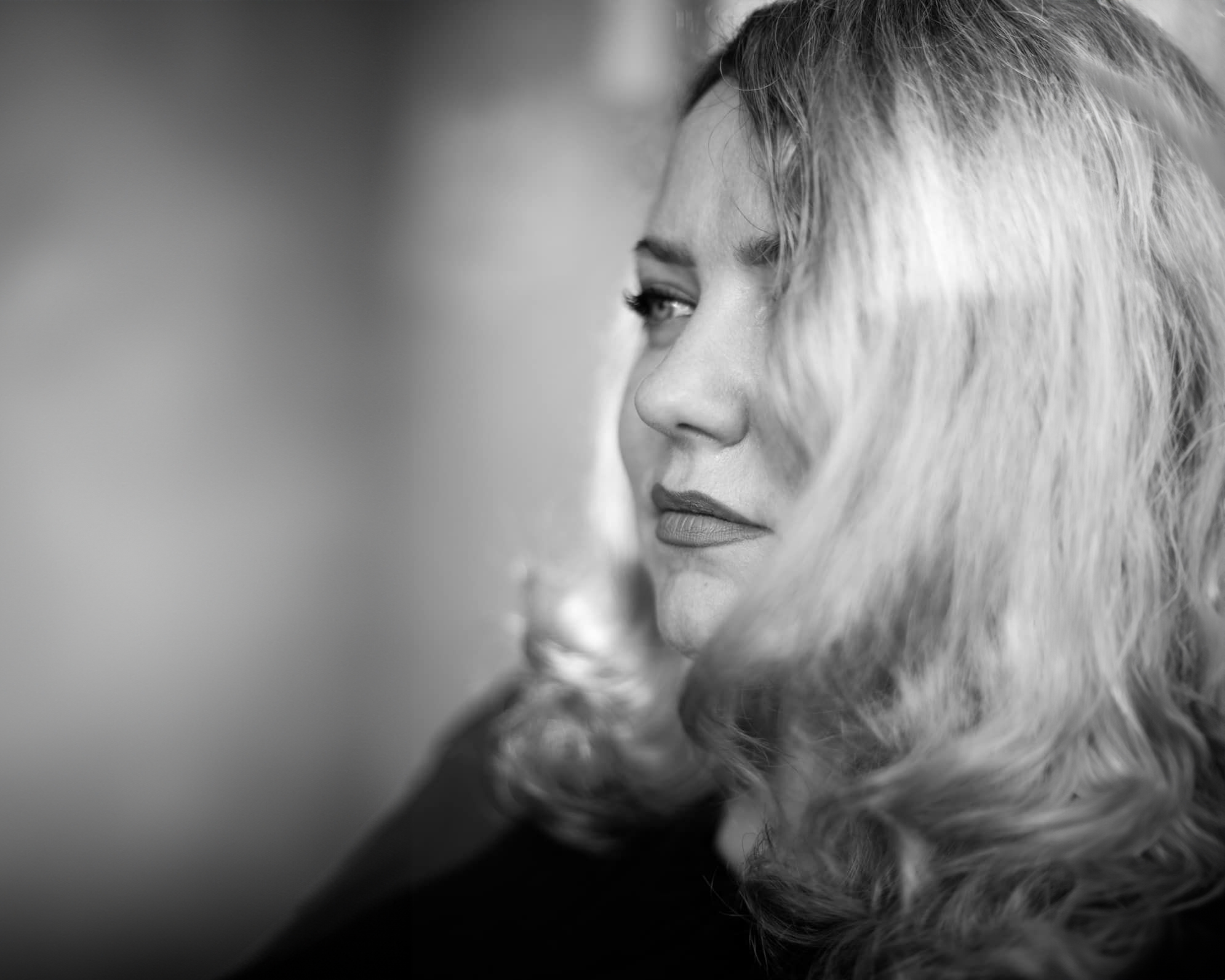
“This is what reality looks like for many human rights defenders, including myself. After surviving a night of missile attacks, the workday still begins at 8 am.”
“In my work, aside from the initial fear and a purely emotional response during a missile attack that I might be killed, I immediately start to worry about whether any of the people that I work to protect have been affected by the attack, if there have been any direct hits, and if they are safe.”
“I can’t afford to be sick because requests keep pouring in, leading to a sort of chronic fatigue. Colleagues are getting very ill – burning out intensely because the accumulated stress has nowhere to go. This turns into complex depressive conditions, where you find yourself in a very tough emotional state, yet there’s no straightforward solution for your condition, because, after all, you have responsibilities.”
“I have been offered a one-month retreat programme abroad, but I was told that I wouldn’t be able to work during this time. I realise this is simply unrealistic given the volume of work, rendering the programme inaccessible to me… like a child looking at the candy in a shop window – you want it, you see it but it’s not available to you.”
Yankina shared that it’s crucially important to support representatives of civil society and human rights defenders who experience high levels of emotional load and multitasking with adaptive support programmes that would take into consideration the situation of individuals.
Protection of Human Rights defenders and Emergency Support for Ukraine
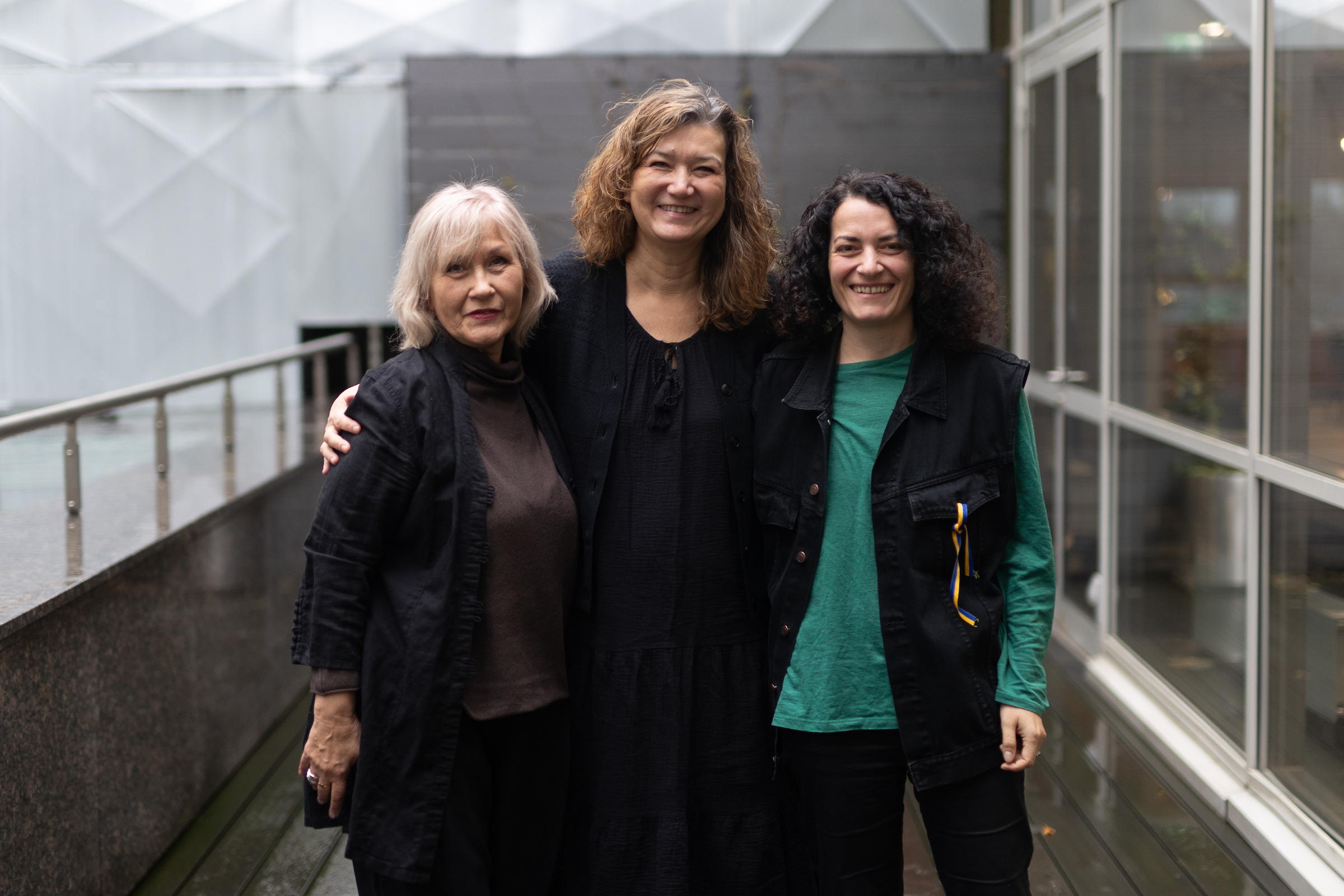
HRHF has been working alongside several Human Rights Houses (HRHs) for over a decade to protect HRDs at risk in Eastern Europe and the Caucasus through the Network Protection Programme. In addition to that, in 2022-2024 together with the ERIM-led coalition of partners, HRHF has been implementing the Emergency Support Ukraine project (ESU) funded by the European Union. This project aimed to strengthen the resilience and effectiveness of war-affected CSOs and civil society actors in Ukraine, including independent media and human rights defenders.
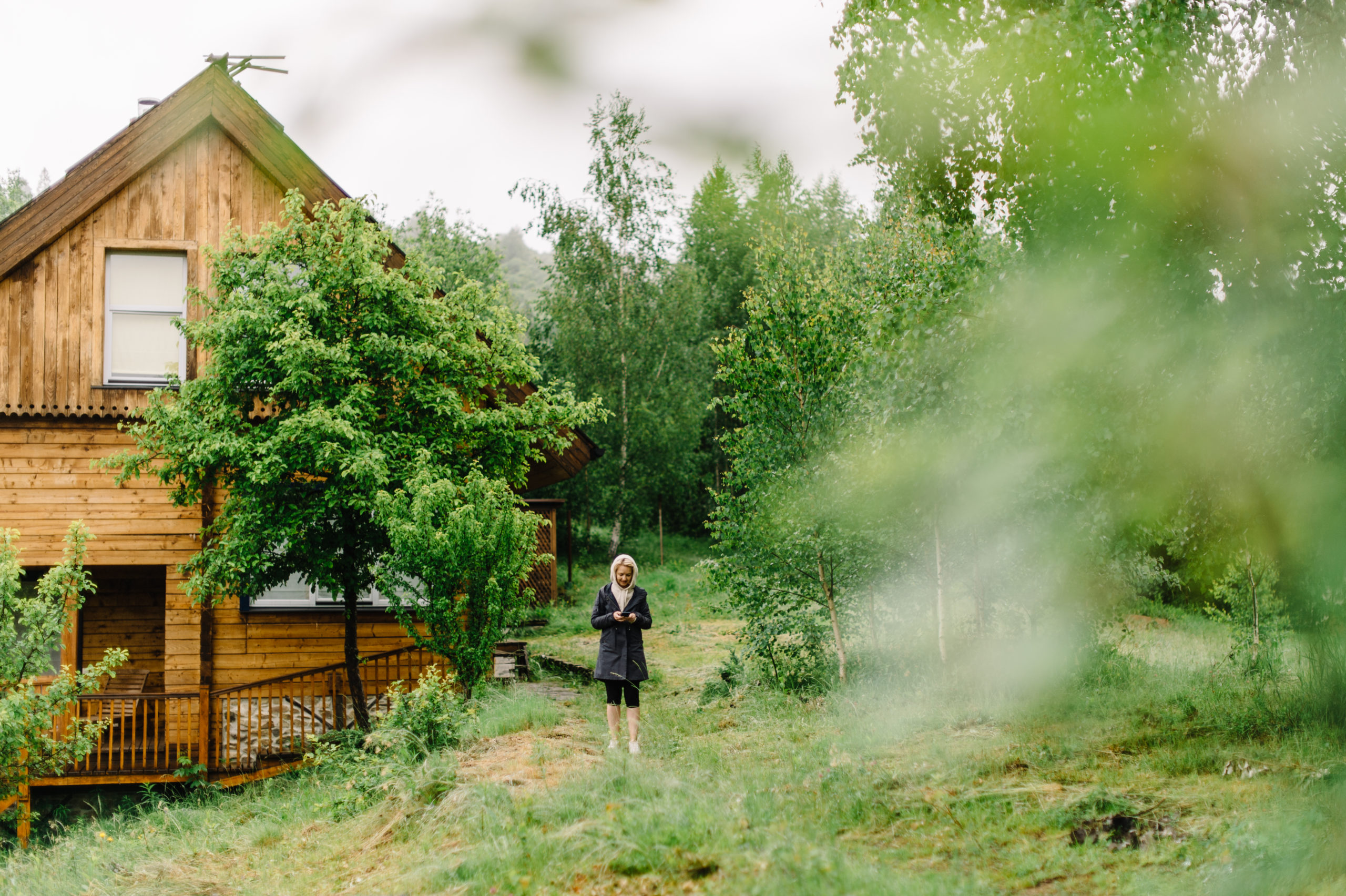
Over 500 HRDs and their family members were supported during 2023 by the HRHs and HRHF, including within the framework of the ESU project. Besides the emergency support with evacuation, relocation, medications, equipment, and digital and security protection, it was possible to provide psychosocial support and wellbeing opportunities for individuals and groups of Ukrainian civil society representatives.
Human rights activist and journalist, Iryna Vyrtosu, was one of the beneficiaries of the ESU project within the psychosocial rehabilitation programme implemented by Educational Human Rights House Chernihiv. This program was aimed to increase trauma competence for activists, human rights defenders and journalists who work with the survivors of violence and war. Vyrtosu reflects on the common lack of self-awareness when it comes to self-care and wellbeing and shares that this programme helped her to recover and continue human rights work, while upgrading her professional skills.
“I’ve learned to monitor my state. For example, now I know for sure that I need to sleep well because anxiety increases at night. We were trained to be anxious at night, so I need to sleep when there’s an opportunity… I often work with people slightly younger than me. Their eyes are burning, always full of ideas. And I always ask them these simple basic questions: Have you eaten today? Have you slept? Where will you find the time and energy for this idea? I can share my experience and knowledge, my contacts and resources with them, but that’s not all. I want them not to forget about themselves in this drive.”
“[During organisational wellbeing retreat] we could take time to enjoy the sunshine, something that we are not used to anymore.”
In 2023, the Kyiv-based team of Human Rights House Crimea received organisational wellbeing support. Its Director, Andrii Zubariev, shared that the team retreat was an opportunity for the colleagues usually working remotely from each other to reconnect and get to know each other on a deeper level. Zubariev believes that when it comes to planning a wellbeing programme, it’s important to be attentive to the individual needs of beneficiaries. “In some cases, the agenda of the wellbeing activities should take into consideration a chronic lack of sleep, the daily overload of social interactions, and in cases of remote retreats sometimes a necessity to bring family members and pets along, to let the participant not to worry for them staying behind in the cities with the risk on missile attacks and, hence, have a quality restoration together.”
Iryna Hudym, an accountant at Crimean Human Rights Group, a member organisation of Human Rights House Crimea, participated in organisational wellbeing retreat, supported by the Norwegian Ministry of Foreign Affairs, together with her family. The retreat took place in the mountainous part of Western Ukraine in December 2023, and, as she shared, it was one of the first times since February 2022, when she “felt safe and happy”.
At the beginning of the full-scale invasion, Iryna found herself in the shelled town of Irpin together with her husband and two-year-old twins. At the beginning of March 2022, as the shellings targeted their residential building among others, and the occupation by Russian troops started, they decided to try to escape. It took them two days to move across the city running and hiding to approach the Romaniv bridge – the escape way toward Kyiv, later known as the “road of life” and a “bridge of death”. Running out of batteries, food and hygiene for children, Hudym and her husband were in touch with her colleague Olha Skrypnyk, when the rare mobile signal allowed, to learn the details of what was happening in their town and try to act accordingly.
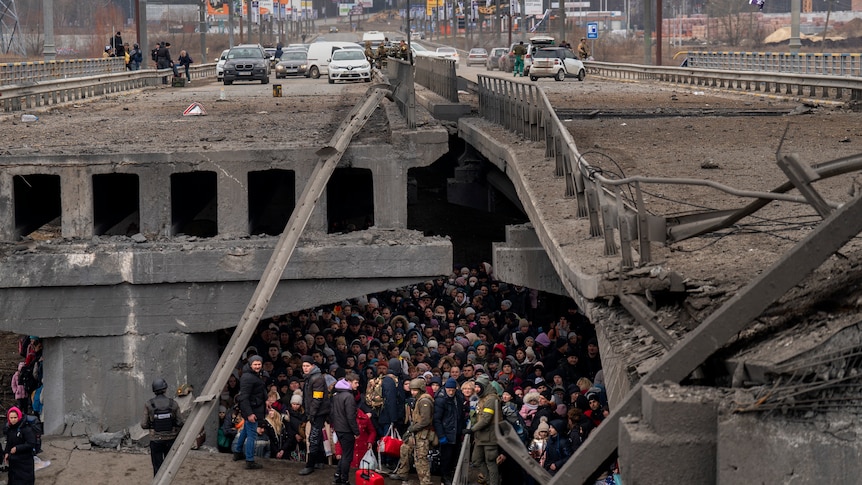
“It was the toughest decision in my life to try to escape, risking the life of my family, my children. People were shot dead trying to escape via the bridge the day before us. But I knew what would happen to me and my family if we stayed and were captured by the occupiers [because of the] kind of organisation I was working for.”
“I used to be an optimist in life. But because of what my family and I have gone through and are still experiencing due to the war, I can’t enjoy life 100%, I can’t relax fully. Now, my optimism is somewhat subdued. You can’t dream, you can’t make plans, and getting into work mode is becoming increasingly difficult – it requires a lot of effort. Because we’re in the midst of this [war], we can’t detach from it.
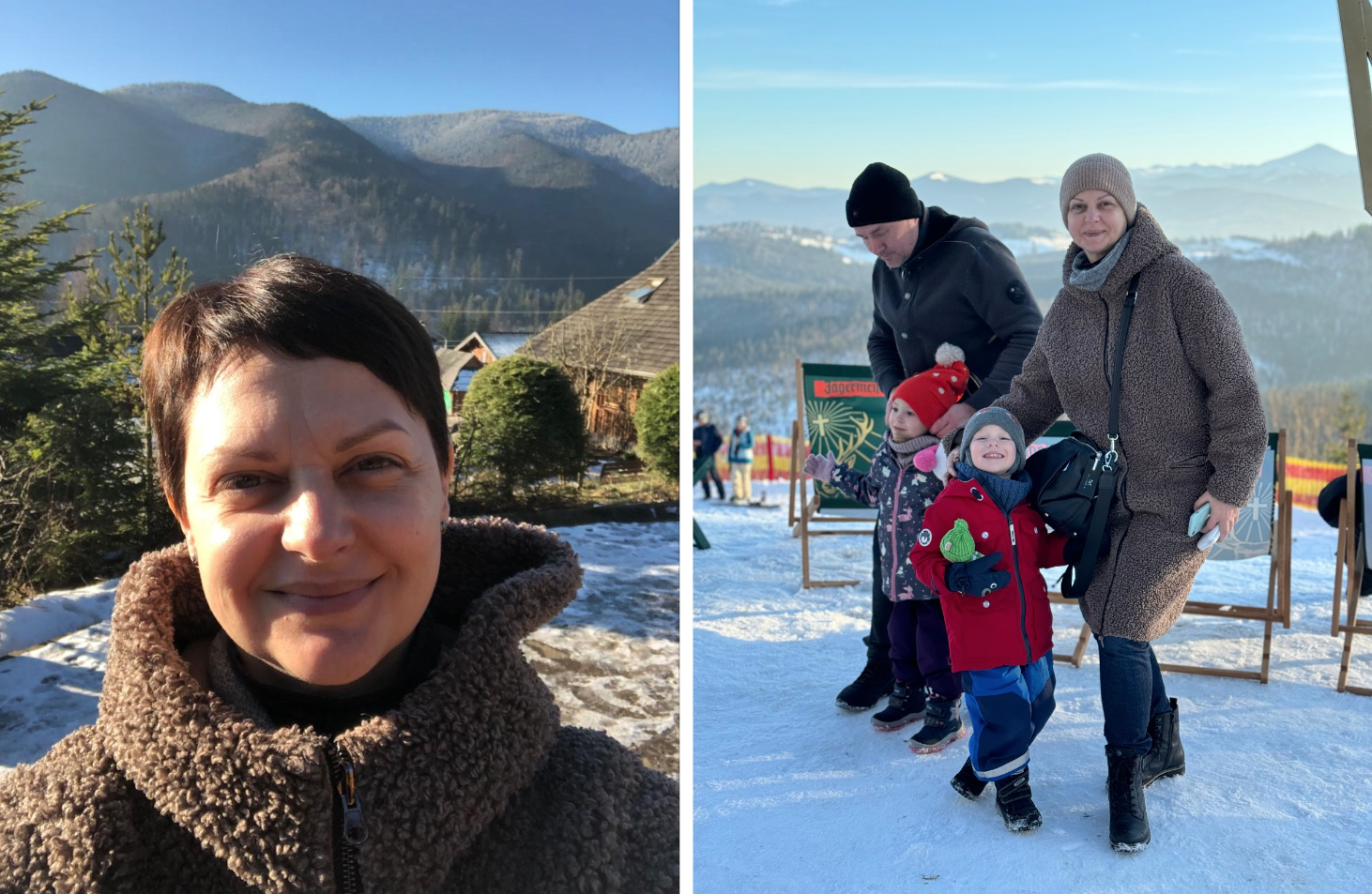
“We haven’t had a real vacation in these two years – human rights organisations work non-stop, there’s always work to do. The [organisation wellbeing] retreat supported me, because we got to spend some quality time with the family and colleagues in a safer area, and we managed to distract ourselves. There were no air alarms, the atmosphere was different, and we could take time to enjoy the sunshine, something that we are not used to anymore,” concluded Hudym.
“Support for civil society’s wellbeing is an investment into a free and democratic world”
According to Elisabeth Ng Langdal, MHHRI has witnessed a concerning trend in the wellbeing of human rights defenders. She shared, that “there’s a noticeable increase in requests from organisations to address the mental health impacts on defenders… We advocate for various forms of support, such as psychoeducation, individual and group psychological assistance, workshops, retreats and rehabilitation activities. The demand far exceeds the current capacity, as evidenced by the overwhelming number of requests from beneficiaries… This underlines the need for sustained support and resources to safeguard the resilience and effectiveness of human rights defenders and others working in the field.”
Within the context of the full-scale Russian invasion of Ukraine, Wika Solonitsyna has observed a dramatic increase in the need for mental health assistance for civil society as well as the general population: “Since February 2022, millions [of Ukrainians] have become displaced persons, many of whom were forced to leave Ukraine, many are now soldiers, thousands have died or been injured, numerous towns and villages have been levelled to the ground. Behind all these events are citizens who require psychological, legal, humanitarian and other assistance and Ukrainian activists, human rights defenders, and volunteers are on the front line to provide it. Such work is very exhausting, especially during the war… That’s why it’s so important to support them and implement a culture of wellbeing in civil society organisations now. The needs are high: we receive up to 15 applications for a spot in our retreats and wellbeing programs for the representatives of CSOs in Ukraine.”
“CSOs carry a leading role in advocating for the human rights and needs of the population affected by war and their wellbeing is directly related to the resilience of the country and its future sustainable development. We emphasise the importance of attention to and support of the mental health of individuals within CSOs and the implementation of the wellbeing culture within CSOs, understanding their importance and impact in their current role as well as their crucial future role in the democratic post-war recovery processes. We believe that support for civil society’s wellbeing is an investment into a free and democratic world,” concluded Solonitsyna.
Top photo: AHALAR’s “Body. Resource. Balance” retreat participant. Slavske village, Ukraine, June 2023. Photo courtesy of EU NEIGHBOURS east.


